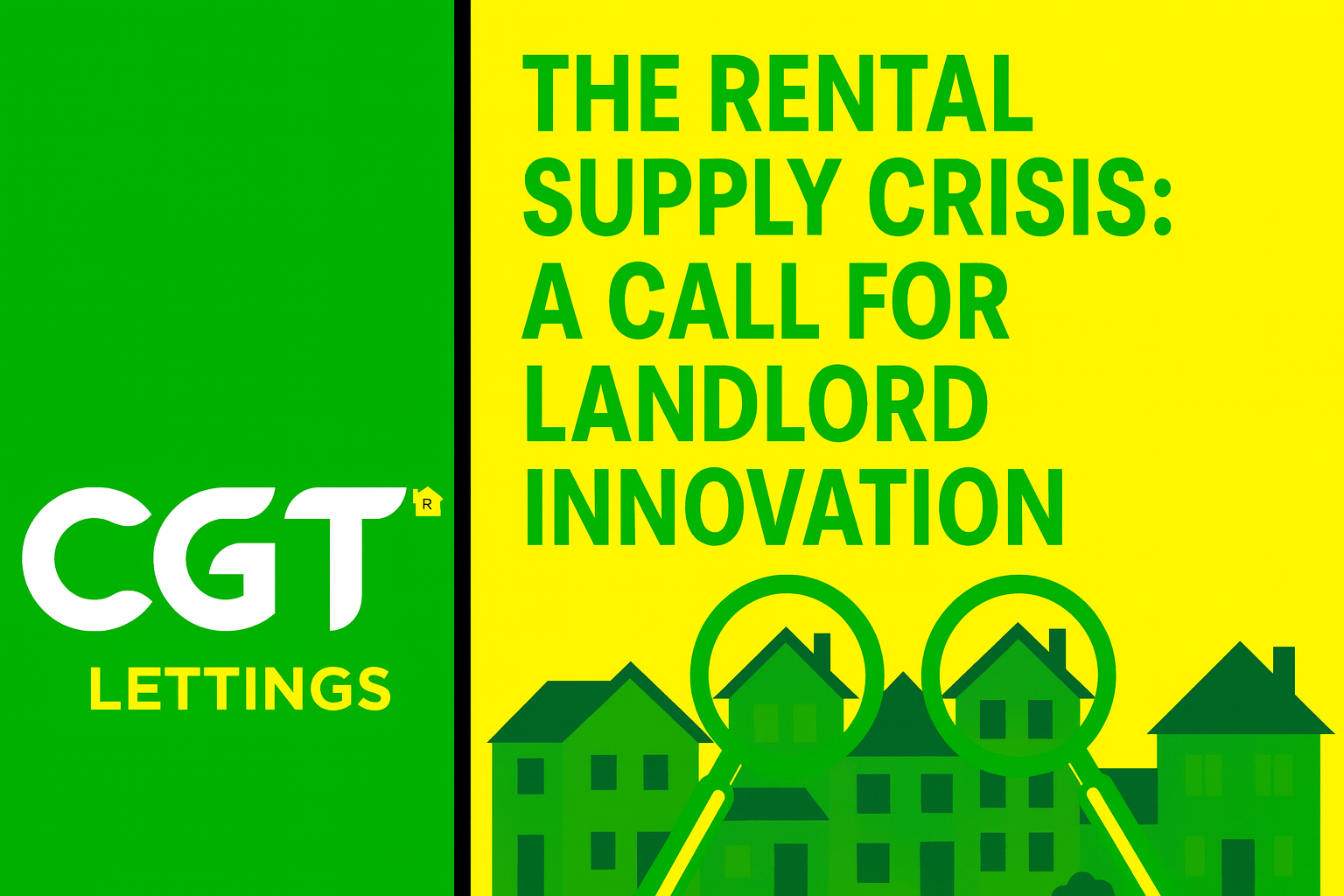The Rental Supply Crisis: A Call for Landlord Innovation
SpareRoom’s latest research highlights what many of us in the property sector have felt building for years – renting in the UK is no longer just a “city problem.” The crisis has spread into towns and suburbs, where renters priced out of major cities are competing in unprecedented numbers for every available room.
Across the UK, suburban areas now report multiple renters chasing every listing, with some towns seeing as many as eight or nine people searching for a single room. Demand is so high because affordability in the cities has reached breaking point, forcing renters further out in search of value.
But what does this mean for landlords in Gloucestershire?
Our region sits in a unique position: within reach of Bristol, Birmingham, and Oxford, yet still more affordable. But affordability is relative – and with the Renters’ Rights Bill looming, the pressure on landlords to adapt, modernise, and rethink their strategies has never been greater.
Rethinking the ‘castle’ mindset
For years, landlords have followed the “my home is my castle” approach – buy, hold, and let as a single unit. In today’s market, could that way of thinking be out of step? Capital growth over recent decades has created huge wealth for many landlords – wealth that looks impressive on paper but often sits locked in bricks and mortar. Is it now time to turn that equity into liquidity and reinvest in ways that not only safeguard returns but also respond to today’s rental pressures?
Homes that once accommodated growing families could instead be adapted into properties designed for multiple tenancies – reducing risk, increasing yields, and, crucially, lowering the average rent per tenant through room lets. The opportunity is clear: landlords who shift their thinking can support affordability for renters while improving their own income stability.
A Gloucestershire case study
Take a typical Victorian terrace in Cheltenham currently let as a four-bed family home at around £1,600 per month. As a single let, the yield is steady but limited. Convert that same property into four high-quality en-suite HMO rooms, and each could rent for £650–£700 per month. That transforms the monthly income from £1,600 to £2,600–£2,800. At the same time, tenants gain access to affordable accommodation compared to whole-property rents, and the landlord reduces the risk of voids by diversifying income streams.
This is not theory – it’s already happening. HMOs in Cheltenham, Gloucester, Stroud, and Tewkesbury have become some of the most resilient assets in the rental market. Far from the stigma of the past, they are increasingly seen by tenants as practical bases, pied-à-terres, or long-term homes.
Looking forward
The future of renting is about diversity – not just of tenants, but of models. Short-stays, room-shares, HMOs, and faster, more secure transactions will define the next decade. The way people live, rent, and buy is changing — and may soon look very different from what we know today.
At my daughter’s first school meeting this week, her teacher said something that struck me: “We are preparing children for jobs that don’t yet exist.” That comment has stayed with me. How do you teach children for a future that is currently unknown? And if we can’t even define what those jobs will be, perhaps the real task is to prepare them for change itself.
The same is true in property. We can’t predict with certainty exactly how people will want to live, rent, or buy in ten years’ time — but we can listen to the clues. Affordability pressures, AI, immigration, and demographic shifts are already reshaping demand. The challenge for landlords is to hear those signals and adapt. Because while the details of the future may be unclear, the fundamentals are not: people will always need homes that are affordable, flexible, and secure.
So perhaps the real question is: are landlords preparing for a housing future that doesn’t yet exist?
A conversation worth having
My team and I are on hand to help landlords navigate this change and innovate the way people rent, sell, buy, and let to satisfy today’s needs while preparing for tomorrow’s challenges. If you would like to talk this through — whether to review your portfolio, explore ways to meet your investment objectives, or simply share ideas — we’re here to listen, learn, and help.

